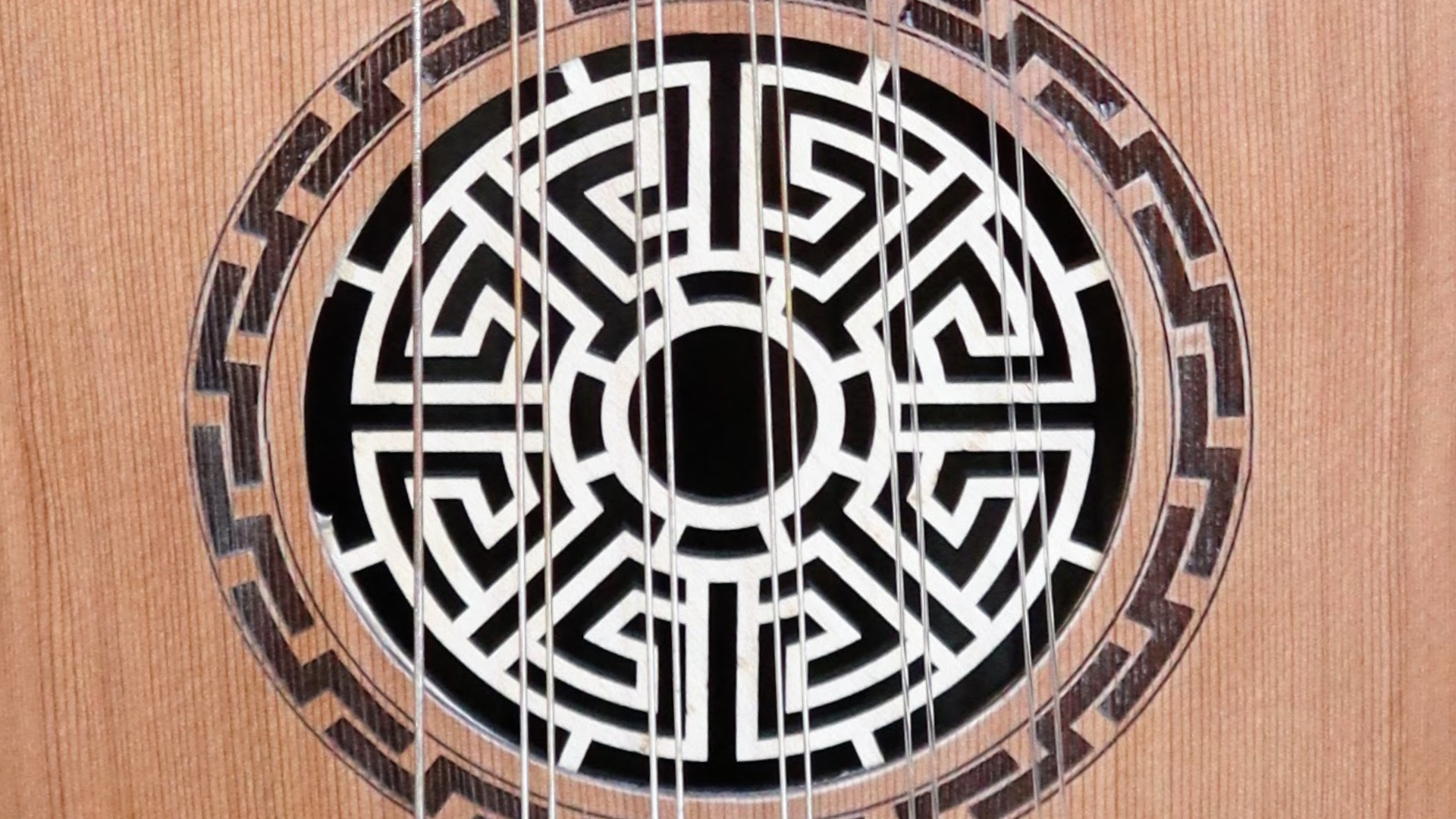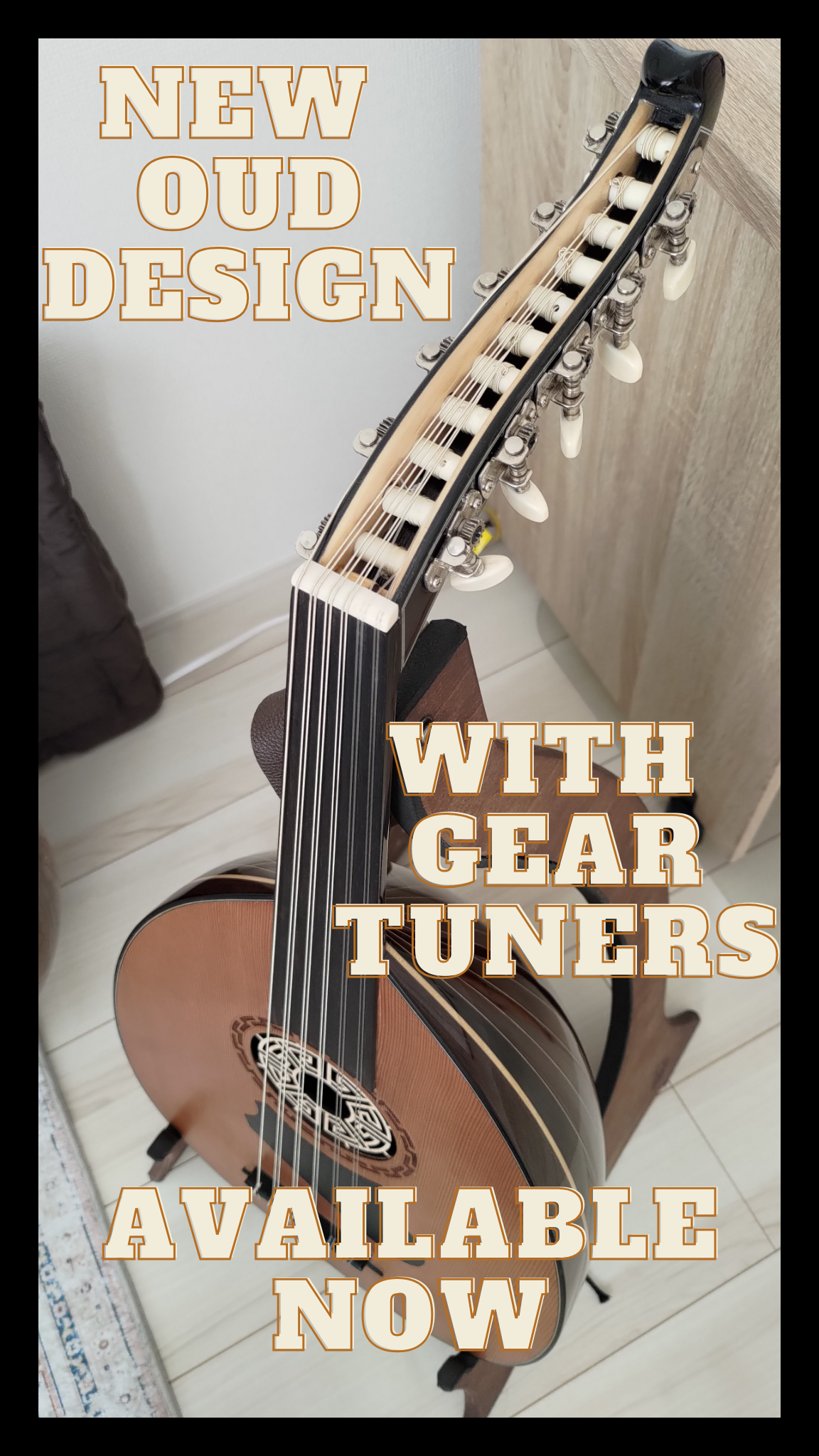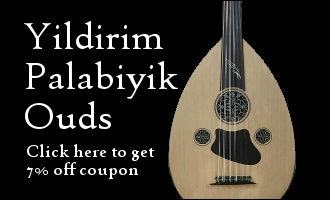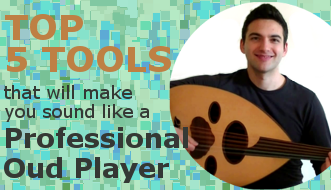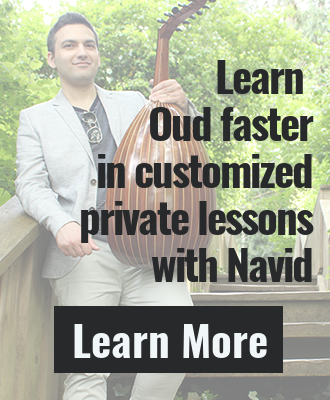This is a question I get regularly, and it’s one that me and everyone go through from time to time. I would recommend practicing creating simple phrases, and trying different ways of saying the same thing. Different stroke pattern, different number of notes, or stop on a different note, make a daily habit out of practising and taking some risks. Play something that doesn’t make sense. See what you can…
Read MoreFarid Al Atrash Taqsim Al Rabeea Part 4 – Finale!
I was listening to this Album by the Classical Arabic Orchestra of Aleppo, Ottoman Arabic Classical Music. The first track is Samai Bayati starting with a Oud taqsim. At about 0:53 seconds, the Oud player plays the exact same riff that Farid Al Atrash played from his taqsim Al Rabeea… it’s not exactly the same, but it’s quite obvious where the inspiration for this comes from. In…
Read MoreThe Descending Pattern Technique for Taqsim
The Descending Pattern Technique is something you will definitely hear when you listen to Middle Eastern music. You’ll hear it in short phrases and in longer phrases. It’s used during taqsim and in compositions. In essence, it is simply a musical phrase that gets repeated on different notes descending the maqam or scale. It’s like creating little musical theme and then copying it on different notes making a longer…
Read MoreLuth Traditionnel en Iraq – Album Review – Jamil Bashir
Welcome to another Oud Geek album review. I have been listening Jamil Bashir’s album for quite some time now, and as they say, it’s an oldie but a goodie! If you haven’t heard it yourself yet, it is available for listening at the link below… Mike Oud’s Rare Listening – Jamil Bashir and more (Jamil Bashir is at the top) Please read the biographical information…
Read MoreThe Art of Oud Taqsim – 6 Secrets that will make you sound like Farid Al-Attrash
An Oud Taqsim is probably one of the most well-known musical forms in the Middle East. If you want to play the Oud, you must learn how to play a Taqsim, an Oud solo. Without going into too many details about maqams and theory, here are 6 essential things to think about when you are practicing your taqsim. 1. Opening Your Oud Taqsim The opening first notes that you play…
Read More
